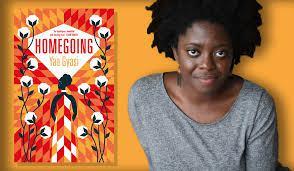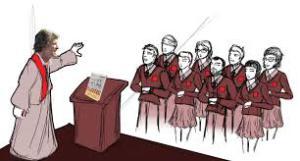The blurbs: “powerful,” “blazing,” “devastating,” “spellbinding,” dazzling,” “epic,” “luminous,” “spectacular,” “hypnotic.” This debut novel by Ghana-born Gyasi, raised in Alabama, had provoked a publishers’ bidding war.

It begins in what is now Ghana, in the 1700s, tracing two lines of descendants of one woman, through eight generations (thus sixteen in all). Maybe it could have been a good thousand-pager. Yet Gyasi does it in 300. I admire conciseness. But here, one hardly meets a character before they’re gone.

This is what makes Homegoing a bore. Even though the episodes it chronicles might seem highly dramatic. This is, after all, mainly the story of slavery, including the horrors of African slave capture, trade, and transport, and American slavery and its aftermath.

Part of it is the writing style. Or lack thereof. Contrast again Toni Morrison, a writer with a distinctive voice. Gyasi has none. Occasional flashes of interesting prose are only occasional. Mostly it’s simply matter-of-fact. Maybe that itself was the style Gyasi was deliberately aiming for. I just found it dull.
I said the characters are idealized. Indeed, they’re almost olympian.

And how about H (his name), arrested and sent to a coal mine in the 1880s South. Making the daily quota (and avoiding punishment) is just barely possible for the strongest. One day, a white newbie is paired with H, complaining loudly about being cast among “n—–s.” But he falls apart, unable even to pick up his shovel. H heroically saves his sorry ass by taking a shovel in each hand and filling both their quotas.
Magical realism, you say? I’ve read magical realism, I get magical realism, but this is no magical realism. It’s just overblown and silly, another way in which Gyasi’s characters have no reality, and so her book lacks impact.
The story of slavery, and of the black experience of American racism, has been told a lot. Overtold? No. I used to think we’d pretty largely moved beyond all that, but lately it’s back with a vengeance.

